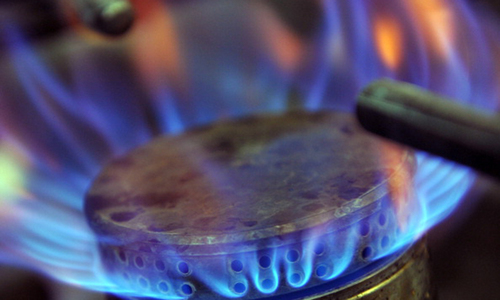ISLAMABAD: Despite surging oil and gas prices on the global market and the resultant rise in the import bill of two essential commodities in recent months, the two gas utilities are struggling to control their heavy losses against regulatory targets approved by the government.
In the first two quarters of the current fiscal year (i.e. July-September and October-December), both gas utilities — Sui Southern Gas Company Limited (SSGCL) and Sui Northern Gas Pipelines Limited (SNGPL) — couldn’t achieve unaccounted-for gas (UFG) reduction targets, according to latest performance report of the petroleum division.
These targets were set by the Oil and Gas Regulatory Authority (Ogra) and approved by the federal cabinet.
Pakistan’s LNG import bill surged more than 92 per cent to $3.32 billion in the first nine months (July to March) of the current fiscal year amid record global prices, even though LNG import cargoes remained 15-20pc lower on average compared to a year ago.
SSGCL, SNGPL failed to achieve unaccounted-for gas reduction targets during July-December
The country’s total petroleum sector imports also jumped to about $15bn during the nine months, a year-on-year increase of 96pc.
Besides direct imports, the prices of the country’s domestic gas and crude are linked with international crude prices.
SSGCL’s volumetric loss fell by 1,003 and 1,270 million cubic feet (mmcf) during the first and second quarters, respectively, against the targets of 12,348 and 16,962 mmcf, according to the report. Percentage UFG increased 0.25pc during the first quarter and dropped 0.23pc in the second quarter.
Likewise, the SNGPL surpassed its first-quarter target by a small margin but missed the second-quarter target by a big margin. The volumetric loss of the SNGPL decreased by 1,510 mmcf (-0.46pc) and 416 mmcf (-0.25pc) during the two quarters against a target of 1,425 mmcf for each quarter.
Under a three-year UFG loss reduction plan ending on June 30, the SSGCL is required to reduce its UFGs by 2.87pc (12,202 mmcf) during the current year, while SNGPL is supposed to cut its loss by 0.50pc (2,280 mmcf).
During the previous fiscal year, UFG losses of SSGCL and SNGPL stood at 15.1pc (54,779 mmcf) and 8.83pc (34,237 mmcf), respectively.
The report attributed the failure of the SSGCL to contain UFG losses to poverty, cold weather, theft and the law and order situation.
It said that since wood and coal were costly and inconvenient, most people depended on natural gas. “High consumption results in very high gas bills. Resultantly, the population adopts practices like bypassing or tampering with the meters and/or managing unauthorised connections,” it said.
Moreover, to curb urbanisation, the Sindh Building Control Authority has prohibited all relevant agencies, authorities and companies from extending utility services to any premises unless the authority approves the relevant completion plan.
“Accordingly, SSGC is unable to provide gas connections to the users and applicants who are residing in such non-regularised premises. As a result of the above-mentioned restriction, the number of potential customers/applicants [who] are unable to get valid gas connections has been piling up and [they are] using unauthorised gas and thus increasing UFG of the company,” the report added.
Under UFG determination by Ogra for each year, any percentage (value of UFG) above the fixed benchmark is treated as disallowance and deducted from the revenue of the gas utility companies.
In 2017, Ogra undertook a study through an independent consultant to determine UFG benchmarks that accounted for the system’s inherent gas loss, challenging local conditions and performance.
This led the government to agree with Ogra’s indicators and decided to take corrective measures to reduce unaccounted-for gas since UFG disallowances significantly impact the company’s revenues, which has a compounding impact on the revenue shortfall of the gas utility companies.
A three-year UFG reduction plan was thus approved for both Sui companies by the Economic Coordination Committee of the Cabinet and ratified by the Federal Cabinet in the 2019-20 fiscal year.
Published in Dawn, May 9th, 2022














































